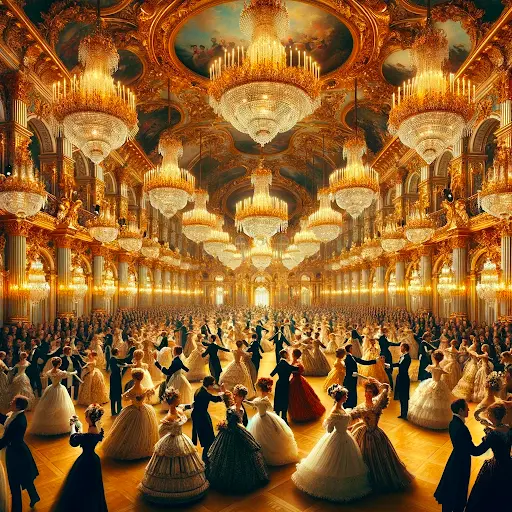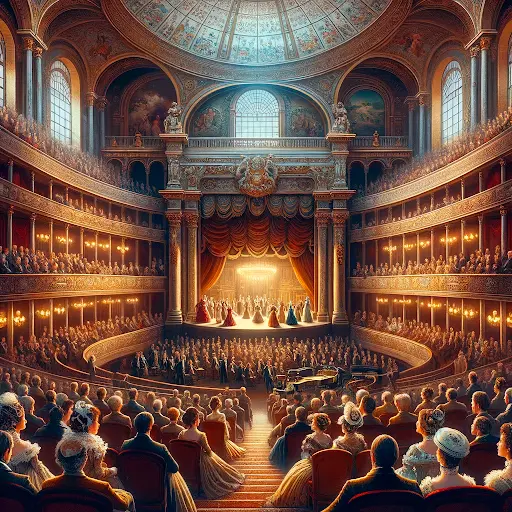Book review of Anna Karenina
Updated: 20 February 24
12
Introduction
In the intricate tapestry of literature, few novels capture the complexities of the human condition as poignantly as “Anna Karenina” by Leo Tolstoy. This masterpiece, transcending the boundaries of its era, offers an immersive exploration of love’s variegated shades, set against the backdrop of Russian aristocracy.
Tolstoy, with his unparalleled narrative finesse, weaves a tale that questions the fabric of societal norms, the pursuit of happiness, and the very essence of truth in human relationships.

Author’s Background
Leo Tolstoy, a titan of literature, not only penned “Anna Karenina” but also contributed other monumental works like “War and Peace.” Born into Russian nobility, his profound observations of society’s strata and the human spirit’s depths are unmatched. Tolstoy’s literary genius is recognized globally, earning him a permanent place in the pantheon of great authors. His adept ability to dissect moral and philosophical issues cements his authority in literature.

Main Content of the Review
Summary
“Anna Karenina” unfolds across the sprawling Russian landscape, presenting a dual narrative. One thread follows Anna, a woman of high society, trapped in a loveless marriage, who finds herself in a tumultuous affair with Count Vronsky, challenging societal conventions.
Parallelly, Tolstoy narrates the story of Levin, a landowner seeking life’s meaning through work, family, and faith. The novel intricately examines their journeys, offering insights into love, fidelity, societal pressure, and the quest for personal fulfillment.

Critical Analysis
The novel’s brilliance lies in its depth of character and setting. Tolstoy’s portrayal of Anna as a complex, vibrant, yet tragically flawed character offers a rich study in contrast to Levin’s moral and existential quest. However, the novel’s sprawling narrative sometimes veers into exhaustive detail, which may daunt some readers.
Comparatively, its exploration of societal norms and personal morality remains unrivaled, showcasing Tolstoy’s extraordinary narrative depth.

Personal Reflection
“Anna Karenina” resonates deeply, prompting reflections on the nature of love and the societal cages we inhabit. Tolstoy’s insight into the human soul, with all its desires and despair, echoes modern dilemmas, making the novel profoundly relatable despite its historical setting.

Recommendation
This novel is a must-read for those who appreciate literature that delves into the complexities of human emotion and societal critique. It appeals to readers who enjoy character-driven narratives and philosophical inquiries into life’s perennial questions.

Conclusion
“Anna Karenina” by Leo Tolstoy is not merely a novel; it is a journey into the heart of human emotions and societal constructs. It challenges, enlightens, and ultimately enriches the reader’s understanding of the delicate balance between personal happiness and societal expectations. Dive into this timeless classic and discover the myriad emotions that Tolstoy so masterfully depicts.

Publishing Date and Awards:
“Anna Karenina” was first published in serial installments from 1873 to 1877 and is celebrated as one of Tolstoy’s finest works. While specific awards for literature were less common in Tolstoy’s time, the novel has since received universal acclaim and is often cited as one of the greatest books ever written.
FAQs
Why is “Anna Karenina” considered a masterpiece?
It’s lauded for its intricate exploration of diverse human experiences, moral questions, and societal critique, all while showcasing Tolstoy’s exceptional narrative skill.
What themes are explored in “Anna Karenina”?
The novel delves into love, infidelity, the conflict between personal desires and societal expectations, the search for meaning, and the contrast between city and rural life.
Is “Anna Karenina” a difficult read?
While its length and depth of narrative can be challenging, the novel is ultimately rewarding for its detailed character study and profound thematic exploration.
How does Tolstoy portray society in “Anna Karenina”?
Tolstoy presents a layered depiction of Russian society, critiquing its rigid norms and the impact of these conventions on individual happiness and moral integrity.
Can “Anna Karenina” be relevant to modern readers?
Absolutely. Its exploration of universal themes like love, personal fulfillment versus societal norms, and the quest for meaning in life resonates across ages.
About Us
At My Review Book (MRB), our passion for literature drives us to explore the depths of each story, beyond its pages. With a diverse team of avid readers and seasoned reviewers, MRB stands as a beacon for those seeking meaningful insights into literature’s greatest works. Our commitment to in-depth analysis and reader engagement makes us your trusted guide in the literary world.
Please Write Your Comments